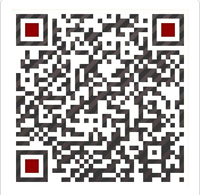Product Details
- Verified Reactivity
- Mouse
- Antibody Type
- Monoclonal
- Host Species
- Rat
- Formulation
- Phosphate-buffered solution, pH 7.2, containing 0.09% sodium azide.
- Preparation
- The antibody was purified by affinity chromatography and conjugated with PerCP/Cyanine5.5 under optimal conditions.
- Concentration
- 0.2 mg/ml
- Storage & Handling
- The antibody solution should be stored undiluted between 2°C and 8°C, and protected from prolonged exposure to light. Do not freeze.
- Application
-
FC - Quality tested
- Recommended Usage
Each lot of this antibody is quality control tested by immunofluorescent staining with flow cytometric analysis. For flow cytometric staining, the suggested use of this reagent is ≤1.0 ?g per million cells in 100 ?l volume. It is recommended that the reagent be titrated for optimal performance for each application.
* PerCP/Cyanine5.5 has a maximum absorption of 482 nm and a maximum emission of 690 nm.- Application Notes
Additional reported applications (for the relevant formats) include: immunofluorescence4, blocking6,7,8,9, and immunohistochemistry of acetone-fixed frozen sections4, 11. The LEAF? purified antibody (Endotoxin <0.1 EU/?g, Azide-Free, 0.2 ?m filtered) is recommended for functional assays (Cat. No. 124303). For highly sensitive assays, we recommend Ultra-LEAF? purified antibody (Cat. No. 124318) with a lower endotoxin limit than standard LEAF? purified antibodies (Endotoxin <0.01 EU/?g).
- Additional Product Notes
- BioLegend is in the process of converting the name PerCP/Cy5.5 to PerCP/Cyanine5.5. The dye molecule remains the same, so you should expect the same quality and performance from our PerCP/Cyanine5.5 products. Contact Technical Service if you have any questions.
- Application References
(PubMed link indicates BioLegend citation) -
- Maier H, et al. 2007. J. Immunol. 178:2714.
- Meng Q, et al. 2006. Invest. Ophthalmol. Vis. Sci. 47:4444. PubMed
- Scarlett UK, et al. 2012. J Exp Med. 209:495. PubMed
- Grabie N, et al. 2007. Circulation 116:2062. (IF, IHC)
- Paterson AM, et al. 2011. J. Immunol. 187:1097.
- Channappanavar R, et al. 2012. PLoS One 7:e39757. (Block)
- Schreiber HA, et al. 2010. PLoS One 5:e11453. (Block) PubMed
- Muthumani K, et al. 2011. J. Immunol. 187:2932. (Block) PubMed
- Cripps JG, et al. 2010. Hepatology 52:1350. (Block) PubMed
- Murakami R, et al. 2013. PLoS One. 8:73270. PubMed
- Riella LV, et al. 2011. Am. J. Transplant 11:832-40. (IHC)
- Lei GS, et al. 2015. Infect Immun. 83:572. PubMed
- Product Citations
-
- RRID
- AB_2629831 (BioLegend Cat. No. 124333) AB_2629832 (BioLegend Cat. No. 124334)
Antigen Details
- Structure
- 40 kD type I transmembrane protein member of B7 family within the immunoglobulin receptor superfamily
- Distribution
-
T cells, B cells, NK cells, dendritic cells, IFN-γ activated endothelial cells, and monocytes
- Ligand/Receptor
- PD-1 (PDCD1)
- Cell Type
- B cells, Dendritic cells, Endothelial cells, Monocytes, NK cells, T cells
- Biology Area
- Cancer Biomarkers, Costimulatory Molecules, Immunology
- Molecular Family
- Adhesion Molecules, CD Molecules, Immune Checkpoint Receptors
- Antigen References
-
1. Sharpe A, et al. 2007. Nat. Immunol. 8:239.
2. Dong H, et al. 1999. Nat. Med. 5:1365.
3. Freeman G, et al. 2000. J. Exp. Med. 192:1027. - Gene ID
- 60533 View all products for this Gene ID
- UniProt
- View information about CD274 on UniProt.org









